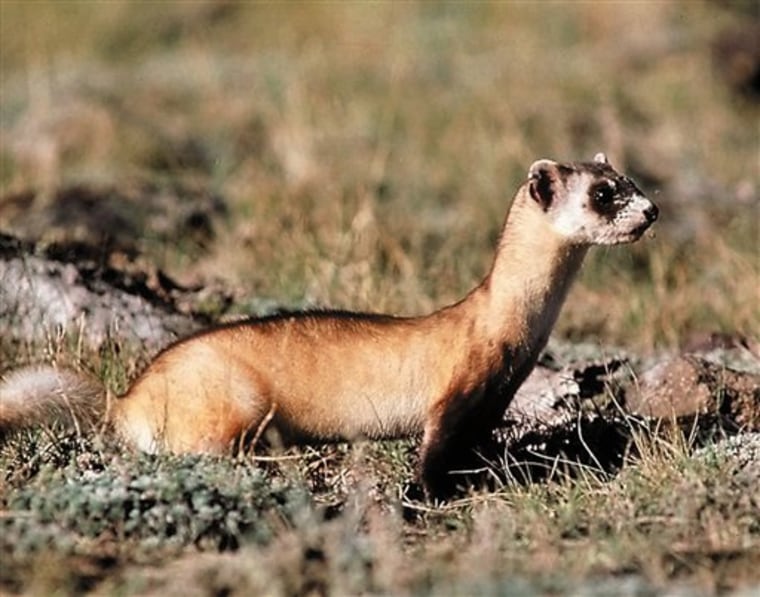Habitat for one of the rarest mammals in North America was among nearly 155,000 acres of federal land in Colorado leased Thursday for energy development.
The state office of the Bureau of Land Management sold oil and gas leases on about 13,902 acres in northwest Colorado where black-footed ferrets have been released to restore the animal to the state. The program is one of several federal-state efforts to bring back the weasel-like animal thought to be extinct until a colony was found in western Wyoming in the 1980s.
"They're gambling with the future of the program and the future of ferrets," said Josh Pollock of the Denver-based Center for Native Ecosystems.
Portions of the 34,563 acres that were up for lease near Rangely are home to ferrets overseen by federal and state biologists. Nine of the 20 parcels in the area were snapped up during the BLM's quarterly auction, which raised a total of $6.8 million.
Big push for inventory
Industry officials have said energy companies need a big inventory of potential drilling spots so they can determine where oil and gas are. The Bush administration has pushed for more U.S. energy production to lessen the country's reliance on foreign oil and gas.
Any development of those leases and others, including ones in areas proposed by citizens' groups as federal wilderness, is on hold as the BLM considers protests filed by environmental groups and area residents.
The quarterly auctions, required by law, have produced more protests as the number of parcels up for bid has increased and the rate of natural gas drilling has shot up. The February auction, which generated a record $11.8 million, ignited a furor in the western Colorado communities of Grand Junction and Palisade because their watersheds are among the 134,582 acres that were leased.
Companies nominate parcels for lease. The land has to be identified in management plans as appropriate for oil and gas development.
BLM spokeswoman Theresa Sauer said the U.S. Fish and Wildlife Service determined that the ferrets wouldn't be jeopardized by the energy development. She said the BLM made it clear in talks with Fish and Wildlife and other agencies before ferrets were released in 2001 that the area was targeted for possible energy development.
U.S. biologist concerned
Rick Krueger, a biologist with the Fish and Wildlife Service, told The Denver Post last month that the prospect of drilling in the area is a big concern.
About 170 ferrets, bred in captivity, have been released in Colorado. Last fall, state wildlife biologists said the animals were thriving and likely were reproducing.
Pete Kolbenschlag of the Colorado Environmental Coalition said it doesn't make sense to allow energy development in the ferrets' range after all the taxpayer money and biologists' time spent.
"A huge amount of land is getting auctioned off every three months. It's time for some balance," Kolbenschlag said. "It's not just an oil and gas estate."
